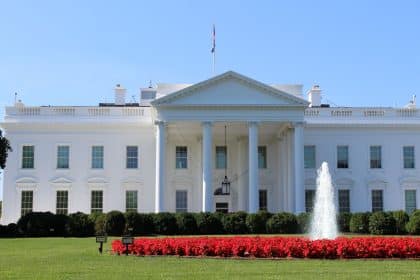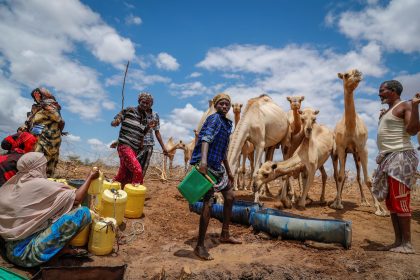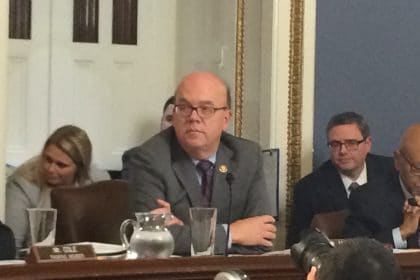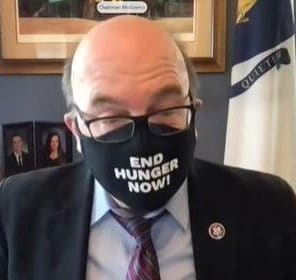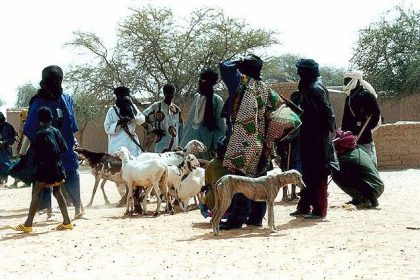At Tyson Foods, Pandemic Inspires Massive Effort to Address Food Insecurity
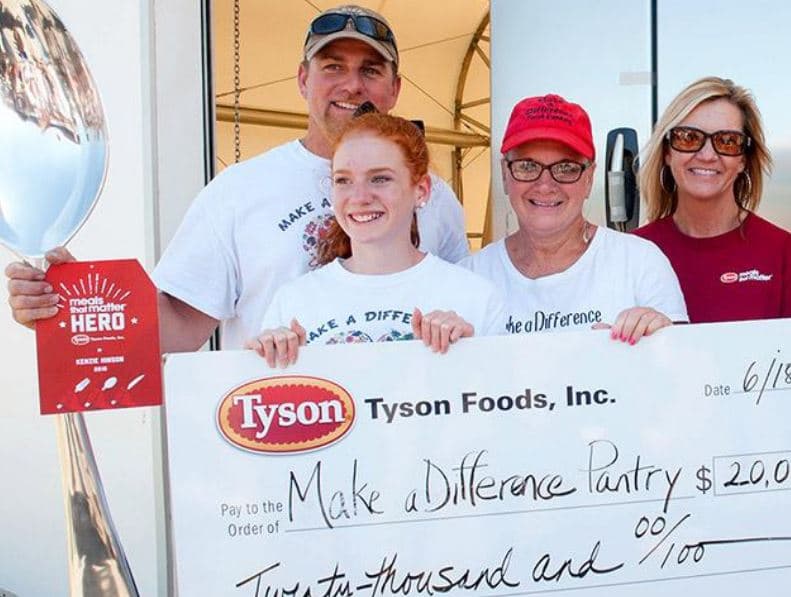
SPRINGDALE, Ark. – The COVID-19 pandemic put everyone through changes. But for large companies, particularly those in the business of providing Americans with something to eat, the challenges that needed to be addressed, quickly, were far ranging and complex.
A case in point is Tyson Foods, Inc., the multinational which is the world’s second largest processor and seller of chicken, beef and pork products.
Like many companies, Tyson, based in Springdale, Ark., began to get an inkling something was terribly amiss from its international operations, and then quickly found itself scrambling to find personal protective equipment for its workers and material to retrofit its facilities.
“I didn’t have a bird’s eye view of what occurred at the time, but what I do clearly remember is a lot of email traffic being generated by multiple teams within the company,” said Debra Vernon, Tyson Foods’ senior director of corporate social responsibility.
“One team would be trying to source materials, another, establishing protocols to safeguard people’s health, while a third tried to figure out how to do contact tracing. So it was really an all hands on deck situation,” she said.
Compounding the strangeness of the situation was the fact Arkansas went relatively unscathed in the early weeks of the pandemic; meanwhile in the 30 states in which Tyson Foods is a major employer, the situation went from bad to worse.
“It wasn’t just that team members were getting sick, it was members of their family, which would in turn have an impact on them. A family member might lose a job and suddenly, their household income was cut in half,” Vernon said.
Tyson foods looked inward, at the tools it had on hand to help.
“With COVID-19, our first response was to make about $1 million in grants specifically to non-profits that were supporting the response to the pandemic in our communities,” Vernon said.
Tyson Foods had made grants in the past, following hurricanes and tornadoes, but had never had to deal with a crisis with the breadth and scope of the COVID-19 outbreak.
“In a usual month, we might see 60 requests for some kind of emergency grant. As of July, we’re up to about 1,200 requests for emergency assistance, the number is rising,” Vernon said.
Tyson Foods also partnered with Feed the Children to help address the issue of food insecurity. As part of the effort, it provided 10 million meals to families in 16 states across America. A recent 2.5-million-pound donation is Tyson Foods’ single largest product gift in 2020.
Every food bank run is a focused effort. The Tyson Foods team knows that every fully-loaded semi-truck it sends out to a food bank will be empty in about two hours time.
“You might think a certain amount of guess-work is involved in an emergency response, but it’s really not,” Vernon said.
“We’ve honed our processes in different kinds of disaster relief situations, and we know how to use our existing supply chain to best advantage,” she said. “Our product managers will keep us apprised of the amount of food we have available to donate, then we plan where it needs to go, typically to a storage or distribution center before going on to the food bank … and we move it all relying on the largest refrigerated truck fleet in the country.”
“What’s different about this one is the collector machine never stops running,” she added.


















